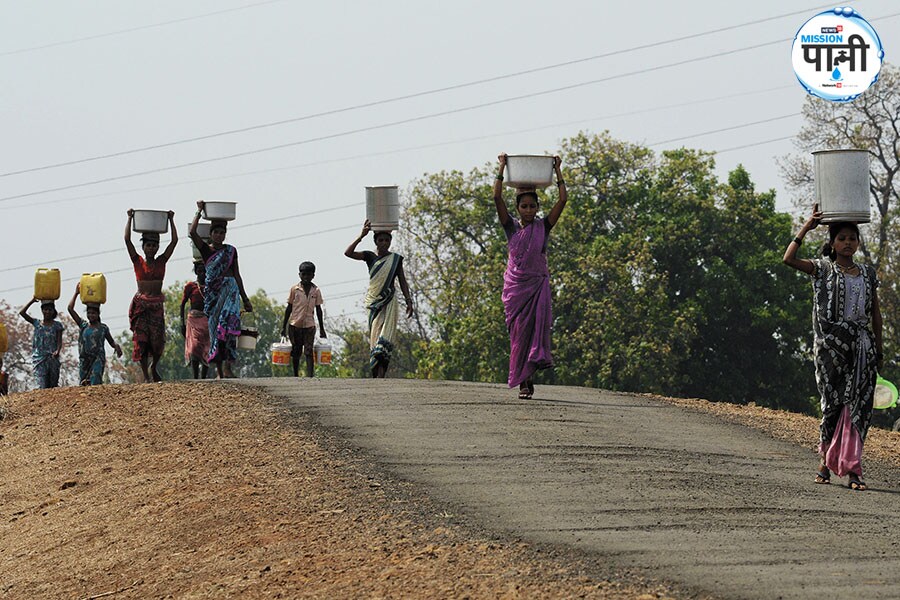Amid the water crisis, stories of hope
Forbes India travels the country to find people who are leading the way in water conservation


 Villagers carry water from a tanker in Shahapur, 130 km from Mumbai. India is facing a water crisis that is increasing with erratic rainfall and weather conditions
Villagers carry water from a tanker in Shahapur, 130 km from Mumbai. India is facing a water crisis that is increasing with erratic rainfall and weather conditions
Image: Getty Images[br]There is a Chinese proverb which says that a frog does not drink up the pond in which it lives. When it comes to water, India seems to have done the opposite: Taking an indispensable resource for granted. Now, about 1.37 billion of us in this giant pond must stop draining it dry. We must also battle unpredictable monsoon fuelled by climate change to replenish it for our collective future.
There is fear about taps running dry everywhere—dramatically triggered by the crisis in Chennai that is forcing people to depend heavily on unsustainable water tankers, the increasing costs of which might soon take it beyond the reach of many. Other cities are facing doomsday predictions too: One says Bengaluru is on the verge of an imminent shortage that might leave India’s Silicon Valley scrambling for drinking water.
The failure to preserve our natural aquifers and catchment areas, the failure to prevent our lakes and tanks from being built upon and the failure to protect our rivers from getting polluted are among the several ways in which we got here. Groundwater levels are plummeting, and soon, borewells might go completely dry too.
India, however, is also the story of people who remain indomitable in the face of dire circumstances. At least that is what Forbes India discovered when it set out to find stories of hope amid this adversity.
Be it Maharashtra, Odisha, Karnataka or Rajasthan, we discovered communities joining hands to find on-ground solutions by going back to basics: Digging open wells, recharging pits, installing rooftop channels to harvest rainwater, preventing water runoffs, scientifically planning crop patterns, and restoring unused ponds and lakes.
These people have no silver bullet to tackle water shortage, just the belief that a drop saved by every individual would soon fill up our rivers and lakes again.
They are no longer waiting for the government, whose capital-intensive projects and elaborate water management policies have fallen woefully short of what they set out to achieve.
However, the communities we met also say their efforts will remain limited and short-lived if the government does not back them up with initiatives that have an immediate, measurable impact.
In Budget 2019, Minister of Finance Nirmala Sitharaman guaranteed clean drinking water to every house by 2024. But, as history has proven, announcing big projects is never a solution to big problems.
Today, as people wait for the establishment to follow through with its plans, they are already doing their bit of storing and sharing water in surprisingly impactful ways.
First Published: Jul 17, 2019, 11:24
Subscribe Now